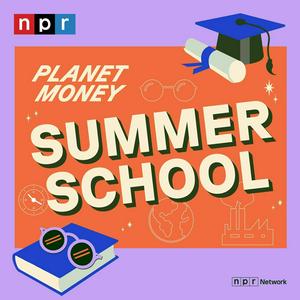Get your own personalized summer school diploma here.
Today on our final episode of Summer School 2025, we will test your knowledge. We will salute the unsung heroes of government service. And we will pick our valedictorian from among you of the class of 2025.
Editorial Note:
President Trump attempted to fire Lisa Cook, a Biden appointee to the Federal Reserve Board. Our daily podcast, The Indicator, has coverage on their latest episode. We’ll have an episode in the Planet Money feed soon, in the meantime, here’s some background listening on why this is so important.
Years before she joined the Fed, we profiled the work of Lisa Cook. Listen here.
Also these:
Happy Fed Independence Day
A primer on the Federal Reserve's independence
The case for Fed independence in the Nixon tapes
Turkey's runaway inflation problem
Arthur Burns: shorthand for Fed failure?
Should presidents have more of a say in interest rates?
Can the Federal Reserve stay independent?
It's hard out there for a Fed chair
The series is hosted by Robert Smith and produced by Eric Mennel. Our project manager is Devin Mellor. This episode was edited by Planet Money Executive Producer Alex Goldmark and fact-checked by Emily Crawford.
Always free at these links: Apple Podcasts, Spotify, the NPR app or anywhere you get podcasts.
Find more Planet Money: Facebook / Instagram / TikTok / Our weekly Newsletter.
Help support Planet Money and hear our bonus episodes by subscribing to Planet Money+ in Apple Podcasts or at plus.npr.org/planetmoney.
To manage podcast ad preferences, review the links below:
See pcm.adswizz.com for information about our collection and use of personal data for sponsorship and to manage your podcast sponsorship preferences.
Learn more about sponsor message choices: podcastchoices.com/adchoices
NPR Privacy Policy


